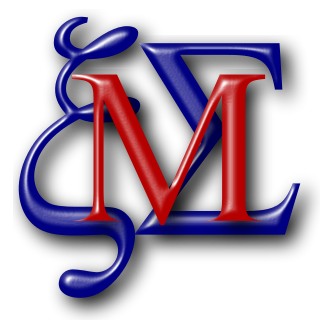 W
WGAP is a computer algebra system for computational discrete algebra with particular emphasis on computational group theory.
 W
WLiveMath is a computer algebra system available on a number of platforms including Mac OS, macOS (Carbon), Microsoft Windows, Linux (x86) and Solaris (SPARC). It is the latest release of a system that originally emerged as Theorist for the "classic" Mac in 1989, became MathView and MathPlus in 1997 after it was sold to Waterloo Maple, and finally LiveMath after it was purchased by members of its own userbase in 1999. The application is currently owned by MathMonkeys of Cambridge, Massachusetts. The overall LiveMath suite contains LiveMath Maker, the main application, as well as LiveMath Viewer for end-users, and LiveMath Plug-In, an ActiveX plugin for browsers.
 W
WMaple is a symbolic and numeric computing environment as well as a multi-paradigm programming language. It covers several areas of technical computing, such as symbolic mathematics, numerical analysis, data processing, visualization, and others. A toolbox, MapleSim, adds functionality for multidomain physical modeling and code generation.
 W
WMapleSim is a Modelica-based, multi-domain modeling and simulation tool developed by Maplesoft. MapleSim generates model equations, runs simulations, and performs analyses using the symbolic and numeric mathematical engine of Maple. Models are created by dragging-and-dropping components from a library into a central workspace, resulting in a model that represents the physical system in a graphical form. Maplesoft began development of MapleSim partly in response to a request from Toyota to produce physical modeling tools to aid in their new model-based development process.
 W
WMathomatic is a free, portable, general-purpose computer algebra system (CAS) that can symbolically solve, simplify, combine, and compare algebraic equations, and can perform complex number, modular, and polynomial arithmetic, along with standard arithmetic. It does some symbolic calculus, numerical integration, and handles all elementary algebra except logarithms. Trigonometric functions can be entered and manipulated using complex exponentials, with the GNU m4 preprocessor. Not currently implemented are general functions like f(x), arbitrary-precision and interval arithmetic, and matrices.
 W
WMaxima is a computer algebra system (CAS) based on a 1982 version of Macsyma. It is written in Common Lisp and runs on all POSIX platforms such as macOS, Unix, BSD, and Linux, as well as under Microsoft Windows and Android. It is free software released under the terms of the GNU General Public License (GPL).
 W
WNormaliz is a free computer algebra system developed by Winfried Bruns, Robert Koch (1998–2002), Bogdam Ichim (2007/08) and Christof Soeger (2009–2016). It is published under the GNU General Public License version 2.
 W
WSageMath is a computer algebra system (CAS) with features covering many aspects of mathematics, including algebra, combinatorics, graph theory, numerical analysis, number theory, calculus and statistics.
 W
WSpeakeasy is a numerical computing interactive environment also featuring an interpreted programming language. It was initially developed for internal use at the Physics Division of Argonne National Laboratory by the theoretical physicist Stanley Cohen. He eventually founded Speakeasy Computing Corporation to make the program available commercially.
 W
WSymPy is an open-source Python library for symbolic computation. It provides computer algebra capabilities either as a standalone application, as a library to other applications, or live on the web as SymPy Live or SymPy Gamma. SymPy is simple to install and to inspect because it is written entirely in Python with few dependencies. This ease of access combined with a simple and extensible code base in a well known language make SymPy a computer algebra system with a relatively low barrier to entry.
 W
WWolfram Mathematica is a modern technical computing system spanning most areas of technical computing — including neural networks, machine learning, image processing, geometry, data science, visualizations, and others. The system is used in many technical, scientific, engineering, mathematical, and computing fields. It was conceived by Stephen Wolfram and is developed by Wolfram Research of Champaign, Illinois. The Wolfram Language is the programming language used in Mathematica.
 W
WXcas is a user interface to Giac, which is a free, open source basic Computer Algebra System (CAS) for Microsoft Windows, Apple macOS and Linux/Unix; Xcas is written in C++. Giac can be used directly inside software written in C++.